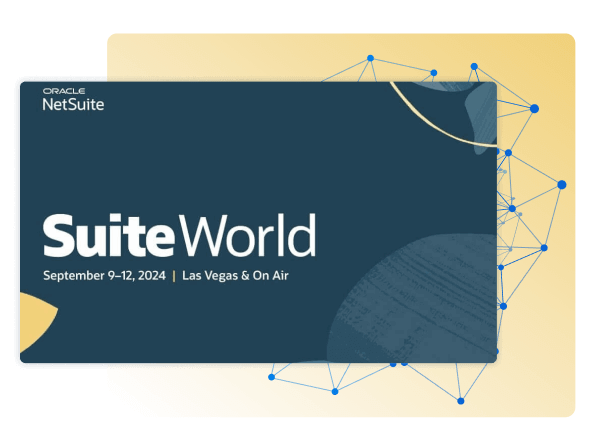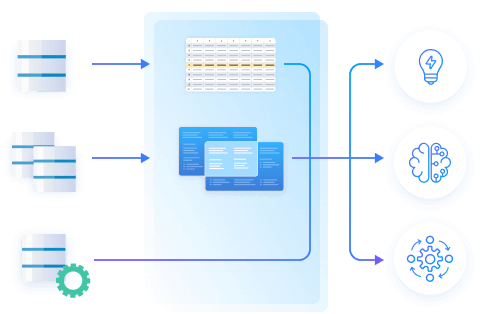6 Enterprise Data Management Tools for Your Business

The volume of data generated every day continues to grow exponentially, presenting both opportunities and challenges for enterprises. While data-driven insights are more important than ever for making informed decisions, the sheer scale of data can overwhelm traditional data management systems.
Storage limitations, isolated data sources, and complex management processes get in the way of effective and timely decision-making. A well-implemented data management strategy supported by the right tools can remove the hurdles, streamlining processes for agile business operations. This article will go into how data management tools help enterprises efficiently handle large datasets, ensuring data quality and accessibility while simplifying overall data management. We’ll also provide a few tool options to consider as you build out your data management strategy.
What is enterprise data management?
Enterprise data management (EDM) relates to the comprehensive strategy, methods, and processes used by large organizations to precisely define, integrate, control, and store their data. Its purpose is to ensure that all data across the organization is processed, accessed, and maintained accurately and securely, supporting operational efficiency and strategic decision-making. Enterprise data management simplifies an organization's ability to generate, integrate, disseminate, and manage data for all enterprise applications and processes. It encompasses a variety of disciplines, including data governance, data quality, data integration, and data security, ensuring that data remains a valuable and effective asset for business operations and analytics.
What is an enterprise data management tool?
EDM tools are software solutions designed to comprehensively manage an organization's data across different systems and platforms. These tools centralize data management practices to provide accuracy, consistency, and accessibility throughout the organization. Key features include:
- Data integration: EDM tools combine data from disparate sources into a cohesive and accessible repository in a smooth and seamless manner.
- Data quality management: They ensure that data is accurate and reliable through continuous monitoring and cleansing.
- Data governance: Enterprise data management tools help establish policies and procedures for managing data effectively, ensuring compliance with regulations and internal standards.
- Metadata management: They provide a clear understanding of data origins, formats, and usage, supporting the organization's ability to manage its information assets.
By streamlining these critical aspects of data management, enterprise data management tools help organizations enhance their operational efficiency, support decision-making processes, and maintain competitive advantage in data-driven business environments.
Types of data management tools
Enterprise data management tools consist of four main categories, each addressing a specific function:
- Product information management (PIM) tools manage product information across different distribution channels. They handle data that supports multichannel product marketing strategies across platforms. PIMs function as central repositories for information used to market and sell products via distribution channels, including e-commerce sites and online marketplaces (Amazon, Google Shopping, etc.), print catalogs, social media platforms, and electronic data feeds to trading partners. The centralized nature of these tools ensures that all channels have access to accurate and consistent information.
- Master Data Management (MDM) tools are critical in ensuring an organization's principal business data (such as information about customers, products, employees, suppliers, etc.) is accurate and consistent across all systems. They help synchronize the data to create a single, authoritative view of business-critical data to ensure its consistency and quality for regulatory compliance, operational efficiency, and informed decision-making.
- Data modeling tools create conceptual representations of data objects and define their relationships within data sources. They help visualize data structures to improve database performance and reliability and ensure that data interactions are optimized for efficient processing.
- Data warehouse tools primarily provide storage solutions for managing large volumes of data, focusing on data retention rather than management processes. While they provide a central repository for data, they do not include specialized features. Additional tools are needed for data quality analysis, metadata management, data security, or other specific functionality.
What is the difference between master data management and enterprise data management?
Master data management (MDM) and enterprise data management are both important components of a sound data strategy, but they serve different purposes and focus on distinct aspects of data handling. While MDM ensures the precision and consistency of key data elements, EDM takes a holistic approach to data management. Both are vital, but their applications meet different organizational data handling and utilization needs.
MDM focuses specifically on creating a single, accurate, and authoritative source of truth for critical business data (master data). This includes data about customers, products, suppliers, and assets. Its purpose is to ensure that the master data is consistent and accurate across all systems and applications within an organization. These systems integrate data from a variety of different sources, cleanse and deduplicate it to resolve inconsistencies so that everyone uses the same, up-to-date data. It’s an indispensable tool to ensure data accuracy and reliability, critical for operational efficiency and regulatory compliance.
EDM, however, is broader in scope. It includes managing master data as part of its framework but also extends to all essential data within the organization. EDM strategies manage the overall data lifecycle across multiple domains, including data governance, quality, integration, and security. It provides a comprehensive framework for collecting, storing, accessing, and using data to support business processes and decision-making across the enterprise. EDM frameworks help organizations maintain control over their data assets and manage them in a way that maximizes their usefulness and value for strategic decision-making.
6 Enterprise data management tools to consider in 2024
Each of these tools offers particular advantages and comes with certain drawbacks, so organizations need to accurately assess their specific needs. Compatibility with existing systems is also critical when evaluating EDM tools. There are many more tools that can support an organization’s data management needs, but here are some notable ones to consider for 2024.
- Oracle Data Management Suite offers data integration, quality, and governance capabilities. It's designed for large-scale and complex data environments, providing efficient data consolidation and management across multiple platforms.
- Pros: It offers high scalability and extensive support for various data types.
- Cons: Its deployment complexity and higher cost of ownership might not work for some organizations.
- SAP Data Management integrates various data management functionalities to help businesses handle vast amounts of data effectively. It natively integrates with other SAP products, offering a unified approach to managing business processes and data.
- Pros: Native integration with SAP ecosystems and offers comprehensive data governance features.
- Cons: It may be less flexible for non-SAP environments.
- Dell Boomi is a cloud-based integration platform that supports a wide swath of data management needs, from integration to workflow automation and data quality. Its strength is in creating connected business environments with minimal coding required.
- Pros: Its user-friendly interface and quick setup make it accessible to non-technical users.
- Cons: There are limitations in handling extremely complex data integration scenarios.
- Talend offers a suite of tools for data integration, quality, and governance. It supports real-time integration and big data environments.
- Pros: Its open-source foundation tends to be more cost-effective and flexible.
- Cons: It might need specialized technical expertise to fully leverage its capabilities.
- Informatica PowerCenter is popular for its data integration and quality tools. It offers features for transforming raw data into useful business information.
- Pros: Its stability and scalability make it a good choice for large enterprises.
- Cons: It can be complex to deploy and requires specialized skills to operate.
- Ataccama ONE offers an integrated management suite combining data quality, MDM, and data governance features. It automatically analyzes, monitors, and improves data quality without extensive manual intervention.
- Pros: Its automation capabilities and comprehensive data governance make it an attractive choice.
- Cons: The sizeable learning curve and the complicated setup may create delays in getting up to speed.
CData provides superior connectivity for your enterprise data management needs
CData Connect Cloud provides organizations of all sizes with a powerful and scalable platform to streamline data management processes. Get real-time data insights from any source using any visualization tool—anytime, anywhere. Try it free for 30 days






